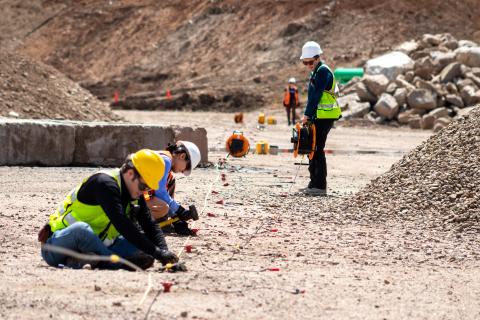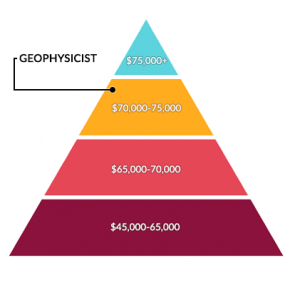All Categories
Featured
Table of Contents
Geophysicist Education in Orelia Western Australia 2020
This work is significantly contracted out, so consultancies offer another source of employment. Consultancy firms vary in size, from extremely small companies to large multinationals. Some consultancies are quite specialised in using particular geophysical methods or operating in particular locations, while others provide a more varied series of services to their customers.
The extraction of gas from land fill sites is another area of work and this may grow in the future. Expedition companies may undertake work for building and construction companies, public utility, mining companies and ecological companies, so geophysicists might be used in any of these settings. Other companies consist of: geological surveysgovernment bodies and agenciesuniversities and research study institutes.


Vacancies may be noted in the oil and gas sector press. Recruitment is impacted by oil cost fluctuations and the level of competition for positions differs depending on this. Careers Days, which cover the full series of geoscience professions and are generally attended by a variety of key market employers, are run by The Geological Society.
Geophysicist Job Description in Maylands Australia 2021
Some of the large oil and gas companies use a complete two-year structured training programme throughout the breadth of geophysics, consisting of the opportunity to experience work in various teams before specialising in one area. Your training might consist of deal with: existing wellsmagnetic and gravitational possible field data analysisresearchrock analysis. However, it's more normal for your initial training to be provided on the task.

There may be a probationary period throughout which you work along with an experienced colleague. Competency-based appraisals take place routinely in many firms. In smaller companies, and for academic posts, there is not likely to be any formal training - you'll be expected to begin work straightaway and pick up abilities as you go along.
If you work for a smaller business, you might find that you need to take duty for organizing and moneying your own advancement and training. If you have a geology degree, membership of The Geological Society can be helpful for networking and for maintaining to date with the market.
Geophysical Survey Next Step In Carbon Storage Study in Mount Nasura Australia 2022
You may likewise find it beneficial to sign up with the PESGB (The Petroleum Expedition Society of Great Britain, which has a geophysics special interest group. After a probationary period, and when you have actually gotten some experience, you might advance to senior geophysicist, then group leader and after that into a senior function in management.
The ease of movement in between roles depends on the business structure. Study at Masters or Ph, D level in a subject associated to geophysics or geosciences might aid with your career advancement and progression. The work market within the oil and gas industry is extremely reliant on rate and this may impact your opportunities for profession progression.
Nevertheless, not all tasks depend on the oil and gas markets. For skilled geophysicists, freelance consultancy uses a great path for profession development. You can likewise specialise in a specific location of geophysics. As a geophysicist, you're likely to have a number of jobs throughout your working life. Worldwide movement is crucial for handling peaks and troughs in various countries at different times.
Geophysicist Salary in Beldon Aus 2021
From geophysics, it's possible to concentrate on seismology (finishing more training to end up being a seismic interpreter) or to move into related areas such as engineering geology or risk forecast.
Deciding what to study in college is a hard choice. Even if you understand that your field of interest lies in science, what program of research study is right for you? If you make the choice to major in physical and biological sciences and pursue a profession as a geophysicist, you're getting ready for an interesting and successful occupation.
The very first action to achieving your goal of ending up being a geophysicist is making a degree. Even for entry-level positions in the field of geoscience, you'll need a bachelor's degree (a geophysicist college degree) from a recognized college or university. Geophysicists need to be able to: evaluate rocks, pictures, and other pieces of data conduct research both in the field and in labs create maps and charts of their findings write reports To achieve all this, trainees require a specialized education for geophysicist professions.
As stated above, you'll need a bachelor's degree in geoscience or an associated discipline, such as a physical science or a life sciences, to land an entry-level job. But trainees can likewise prepare by majoring in topics like: Biology Chemistry Computer technology Engineering Mathematics Physics The above geophysicist majors provide a more generalized technique to a single scientific discipline, but the majority of programs need trainees to take one or more geology course.
Latest Posts
Geophysicist Jobs in North Perth Australia 2021
Geophysical Survey Definition in Warnbro Western Australia 2021
What Is Geophysics? in Carlisle Australia 2020